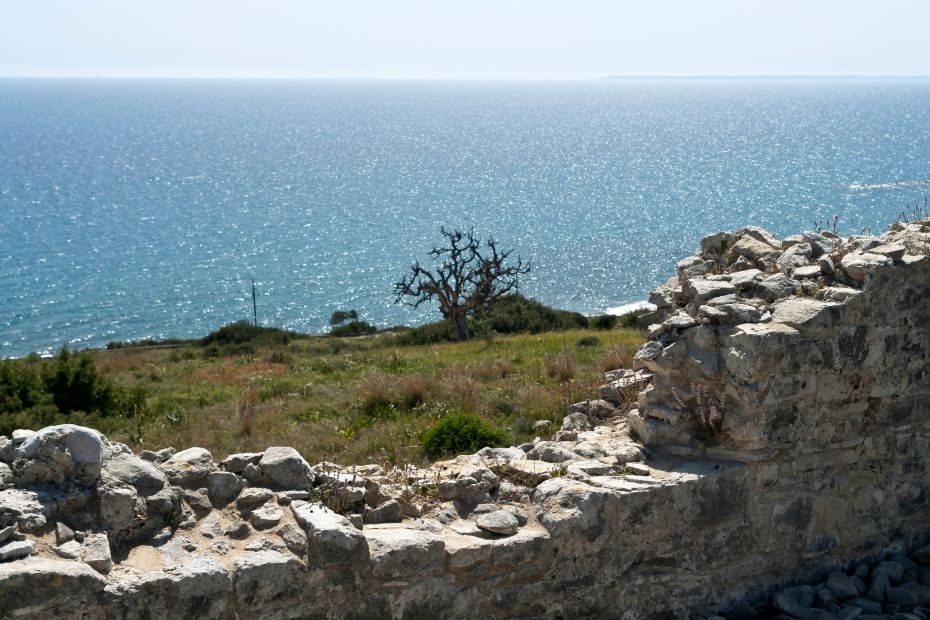
This seminar is organized within the framework of the doctoral program Mediterranean Studies of the Institute Societies in Mutations in the Mediterranean (SoMuM). Each seminar aims to provide a theoretical and methodological synthesis of each discipline in the field of Mediterranean studies: state of knowledge and perspectives.
History is the discipline that studies the past of human societies by mobilizing specific sources, materials and methods. Marked until the 19th century by the recounting of events and the portrayal of great men, it is now characterized by a diversity of thematic and methodological approaches, by a crossing of approaches on the scale of all the human and social sciences, which produce complex and fascinating knowledge.
The Mediterranean is not only a maritime space to be explored: it is a political and cultural world with changing forms and limits, constructed and reconstructed with each generation.
We have therefore decided to approach the history of the Mediterranean through research carried out by historians of Antiquity, the Middle Ages, the modern era and the contemporary world. They present their keys to reading and their methods. By entering the "history factory", whatever the period studied, we are invited to follow proposals for deciphering a Mediterranean space confronted with its heritages and the challenges of its present.
Session 1. The ancient Mediterranean as a political space: view from Greece, view from Rome, view from Jerusalem
2 November 2021, 9am-12pm
(Paul Albert Février Room, MMSH, Aix-en-Provence)
The Mediterranean might seem to provide a unique geographical framework common to all historians of antiquity, but the objective of this first session will be to show that there is, from Greek and Roman antiquity, not one but many Mediterraneas. The point of view adopted for this session will be that of politics inscribed in geography. As we know, the great concepts whose content we continue to question - city, democracy, republic, empire etc. - are inherited from ancient political experiences. - These concepts can be understood in the context of the geography of the country. These great concepts can also be understood in a spatial dimension, they draw several scales of politics.
Speakers
Emmanuèle Caire(TDMAM, Department of Ancient Sciences) will present the ancient Greek notion ofoecumene as a representation of a geographical space and as a space for the elaboration of political models.
Julien Dubouloz (CCJ, Department of History) will explore the Latin expression mare nostrum, "our sea", from its ancient origins in the context of Roman imperialism, to more recent uses.
Katell Berthelot (TDMAM, CNRS) will look at the Mediterranean question from the East, examining the relationship of the Jews to the Mediterranean, understood both as a geographical space and as a place of encounter with Greek and Roman political models.
Session 2. What has Islam changed in the Mediterranean?
9 November 2021, 2-5pm
(DUBY Room, MMSH, Aix-en-Provence)
In a famous book published in 1937(Mahomet et Charlemagne), Henri Pirenne wanted to show that the great Arab conquests of the 7th-8th centuries and the formation of the Islamic Empire had broken the unity of the ancient Mediterranean, precipitating the historical separation between East and West. Regularly contested and nuanced since then, Henri Pirenne's thesis nevertheless has the merit of raising the question of the successive polarizations of the Mediterranean space.
This session will therefore seek to find out what Islam changed in the Mediterranean, in the internal organization of the Mediterranean space, in the relations and exchanges between its northern and southern shores, but also in the representations (graphic and mental) of the Mediterranean, perceived above all as a border space in the Middle Ages. The question will be posed in the long term, from the Arab and Arab-Berber conquests of the 7th-8th centuries to the apogee of the Ottoman Empire in the 16th century, via the great Islamic thassalocracies such as the Fatimid Empire of the 10th-12th centuries.
Speaker
Julien Loiseau (IREMAM, Department of History, Professor of History of the Medieval Islamic World)
Session 3. Writing a history of the marine environment in the Mediterranean. Research itineraries and lines of work (16th- 21st centuries)
16 November 2021, 9am-12pm
(Paul Albert Février Room, MMSH, Aix-en-Provence)
This session will be dedicated to a reflection on the study of the marine environment. The complexity of the mutations caused by global change implies the implementation of interdisciplinary research, within the Human and Social Sciences (SHS), but also in collaboration with the "Life Sciences".
Developing socio-ecosystemic approaches is a challenge, because if the undertaking prohibits, in order to remain rigorous, any dilution of our own disciplinary practices, it also implies an appropriation of the language of the other, and a minimal acquisition of its methodologies and fundamental knowledge. These difficulties explain why even today, in the absence of truly decompartmentalized training in our universities, there are so few environmental historians who dedicate their work to the marine world.
The proposed session will be divided into four parts. First, it will describe, in an introductory speech, how the work of a historian of the sea works. In the light of his own experience, Daniel Faget(TELEMMe, Department of History) will try to show the students how the foundations of intersectorality can be laid, its advances and its practical limits.
He will then successively present three axes approached in the course of his work, carefully linking them to practical field experiences throughout the Mediterranean basin, and showing what the plural approach does to a research object:
- A represented sea: a contemporary return to the sacredness of the marine animal? The case of small marine mammals
- An exploited sea: technological breakthroughs and overexploitation of the resource (16th- 21st centuries)
- A transformed sea: pollution, marine transgressions, bio-invasions
Speaker
Daniel Faget (TELEMMe, History Department)
Session 4. Review of the cross-disciplinary seminar
December 7, 2021, 9-10:30 am
(DUBY room, MMSH, Aix-en-Provence)
Registration opens on ADUM.

